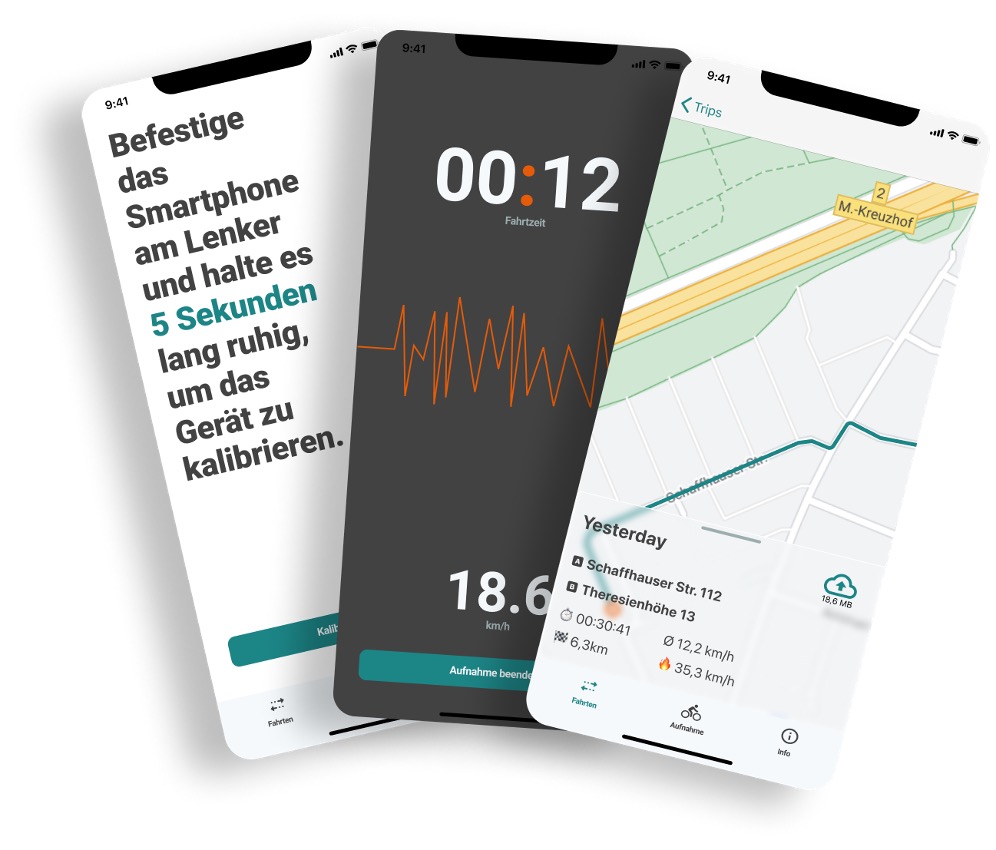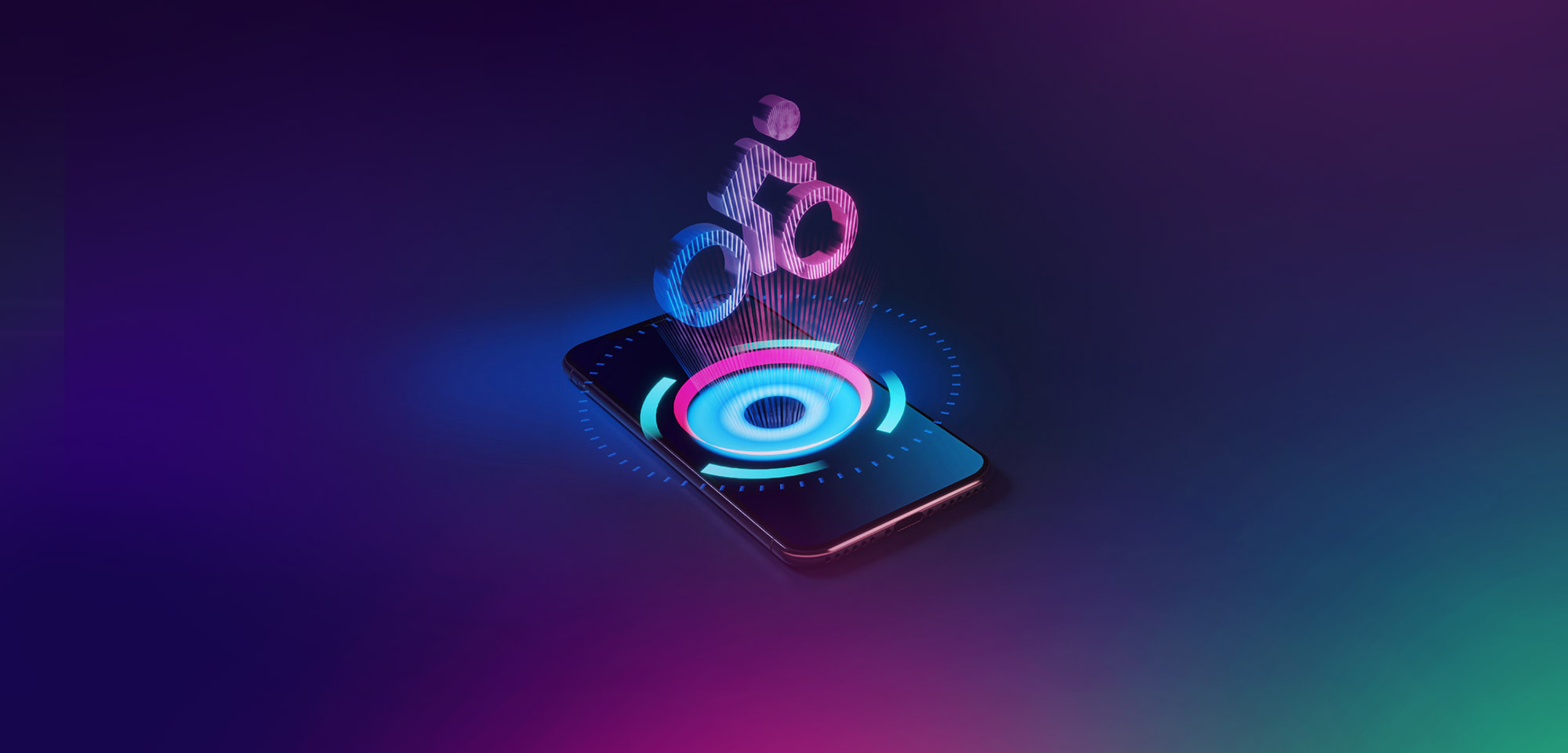Anonymized display on road maps
Better bike lanes thanks to app data
Cycling safely in the city: Our IoT-Bike smartphone app can be used to collect data about cities’ bike lane infrastructure – while riding and without additional hardware. The app uses the smartphones of participating cyclists as sensors and maps the collected data anonymously on roadmaps.

Documentation of the condition of paths and frequency of use
Cell phone sensors provide facts and figures
Data from the acceleration, gyroscope and GPS sensors installed in the smartphone are recorded. These are then used to generate information about the condition of roads and bike paths. In addition to bike lane quality, this includes information on the frequency of use of routes and speeds traveled. The data is transferred anonymously to the cloud and displayed in a dashboard.

How we collect data
Anonymously in the cloud
The smartphone is attached to the handlebars with a bike mount.
To accurately capture vibrations, the mount must be firmly attached.
The measured forces correspond to the forces acting on the rider.
No personal data is collected at any time.
Scalable approach through use of smartphone
Sustainability through crowd sourcing
Can the quality of bike lanes in the city be measured with smartphones? To investigate this question, Florian von Unold, Data Scientist at MaibornWolff, built an Android prototype in a first step that successfully captures significant bicycle events. The next step is to form a cross-functional team across different areas within MaibornWolff to explore the collected data, develop an iOS app, and implement a state-of-the-art cloud application. What motivates them most is the scalable approach through the use of the smartphone and crowd-sourcing, as well as the opportunity to contribute to sustainable living in the city.
Programming languages
- Dart
- Go
- Python
- Rust
Frameworks | Tools | (Cloud-) Platform
- Flutter
- Microsoft Azure
- Kubernetes
- MongoDB
- Docker
- Gitlab CI/CD

With IoT-Bike, we have launched a research project that brings together colleagues from a wide variety of fields so that, in addition to their everyday project work, they can research innovative topics and test new technologies that excite them.
The goal of IoT-Bike is to promote this cross-divisional research and innovation culture. It would be excellent if IoT-Bike could be used by citizens while cycling and cities and municipalities could use this data to improve cycling infrastructures in an even more targeted way.
Florian von Unold, Data Scientist at MaibornWolff
Learn more
